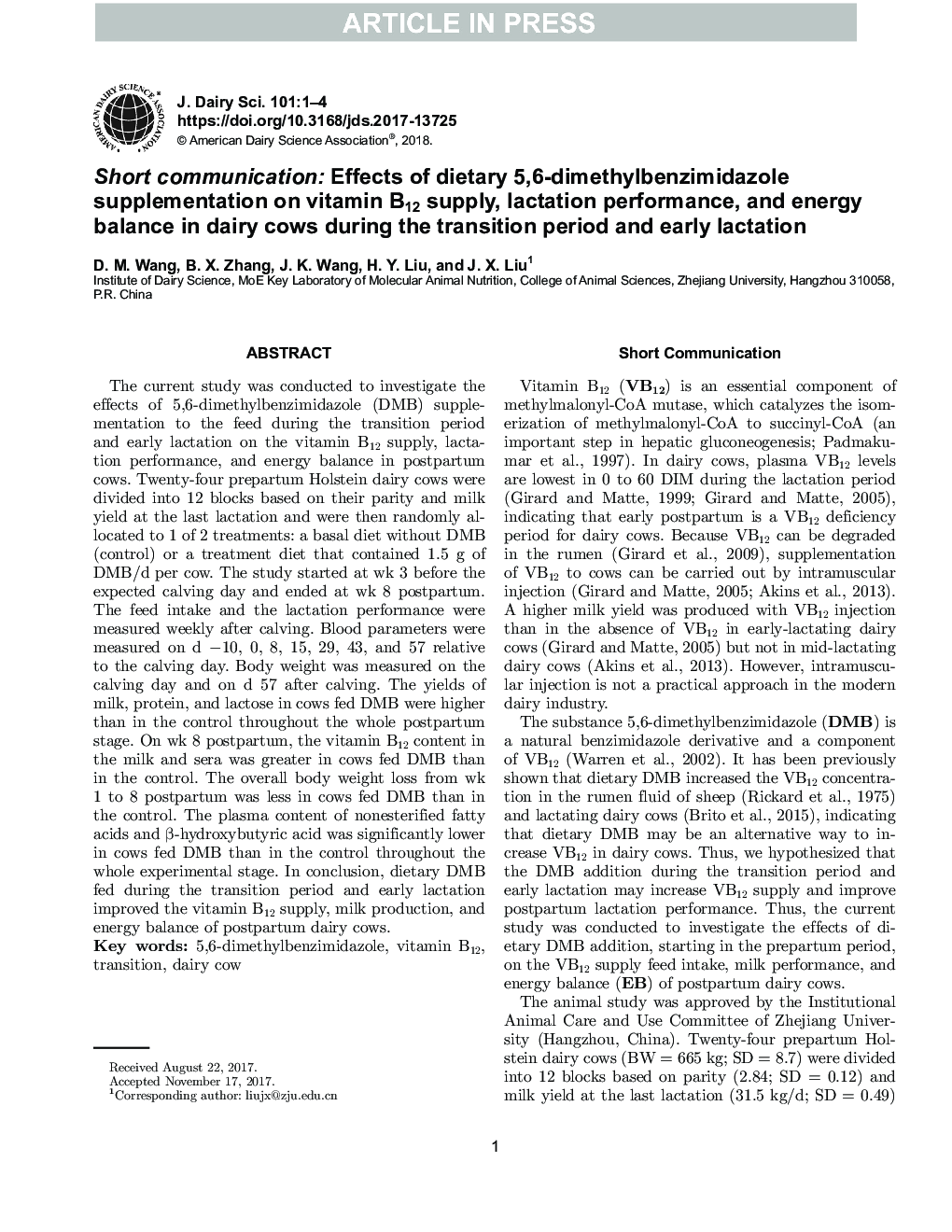| Article ID | Journal | Published Year | Pages | File Type |
|---|---|---|---|---|
| 8501376 | Journal of Dairy Science | 2018 | 4 Pages |
Abstract
The current study was conducted to investigate the effects of 5,6-dimethylbenzimidazole (DMB) supplementation to the feed during the transition period and early lactation on the vitamin B12 supply, lactation performance, and energy balance in postpartum cows. Twenty-four prepartum Holstein dairy cows were divided into 12 blocks based on their parity and milk yield at the last lactation and were then randomly allocated to 1 of 2 treatments: a basal diet without DMB (control) or a treatment diet that contained 1.5 g of DMB/d per cow. The study started at wk 3 before the expected calving day and ended at wk 8 postpartum. The feed intake and the lactation performance were measured weekly after calving. Blood parameters were measured on d â10, 0, 8, 15, 29, 43, and 57 relative to the calving day. Body weight was measured on the calving day and on d 57 after calving. The yields of milk, protein, and lactose in cows fed DMB were higher than in the control throughout the whole postpartum stage. On wk 8 postpartum, the vitamin B12 content in the milk and sera was greater in cows fed DMB than in the control. The overall body weight loss from wk 1 to 8 postpartum was less in cows fed DMB than in the control. The plasma content of nonesterified fatty acids and β-hydroxybutyric acid was significantly lower in cows fed DMB than in the control throughout the whole experimental stage. In conclusion, dietary DMB fed during the transition period and early lactation improved the vitamin B12 supply, milk production, and energy balance of postpartum dairy cows.
Related Topics
Life Sciences
Agricultural and Biological Sciences
Animal Science and Zoology
Authors
D.M. Wang, B.X. Zhang, J.K. Wang, H.Y. Liu, J.X. Liu,
